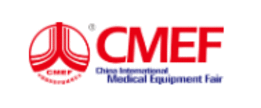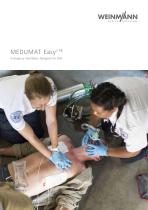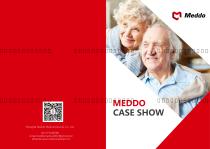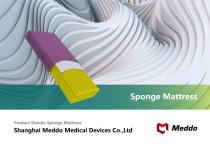
- Primary care
- Pediatrics
- Intensive care ventilator
- Shanghai Meddo Medical Devices Co., Ltd.

- Products
- Catalogs
- News & Trends
- Exhibitions
Neonatal intensive care ventilator CPRpediatricnon-invasiveCPAP
Add to favorites
Compare this product
fo_shop_gate_exact_title
Characteristics
- Applications
- neonatal intensive care
- Patient type
- pediatric
- Ventilation mode
- CPAP, non-invasive, high-flow
- Other characteristics
- with adjustable PEEP
Description
What Factors Should Be Considered When Selecting NICU Equipment?
Patient needs:
Equipment should be specifically designed to meet the needs of premature babies and critically ill newborns.
Safety:
Equipment should be tested and approved for use in the NICU, and should have safety features to minimize the risk of injury or harm.
Ease of use:
Equipment should be easy to use and maintain, and should be designed with the needs of NICU staff in mind.
Compatibility with existing systems:
Equipment should be compatible with other equipment and systems already in use in the NICU.
Cost:
The cost of equipment can be a significant consideration. While it is important to choose high-quality, reliable equipment, cost-effectiveness should also be taken into account.
Training and support:
It is important to ensure that staff are trained properly in the use of new equipment and that technical support is available if needed.
Availability of spare parts:
Availability and cost of spare parts and replacement components is important when considering purchasing equipment.
Maintenance and repair:
Maintenance and repair requirements for the equipment should be considered, such as any specific cleaning or calibration needs.
Durable design:
NICU equipment should be designed to last for many years, since they may need to be used for many patients.
Regulatory compliance:
Equipment should meet all applicable regulatory requirements and standards set forth by regulatory authorities and accrediting organizations.
Catalogs
Exhibitions
Meet this supplier at the following exhibition(s):

*Prices are pre-tax. They exclude delivery charges and customs duties and do not include additional charges for installation or activation options. Prices are indicative only and may vary by country, with changes to the cost of raw materials and exchange rates.



